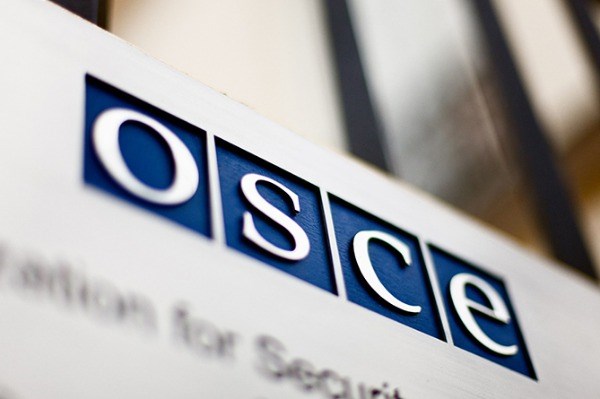OSCE urges Ukraine to prolong special status of Donbas
The Verkhovna Rada of Ukraine should extend the validity of the law “On the special order of local self-government in the separate regions of the Donetsk and Luhansk provinces,” which was adopted in 2014.
Martin Sajdik, Special Representative of the OSCE Chairperson in Ukraine and in the Trilateral Contact Group (TCG) on the situation in the Donbas, has sent an official request to this effect to the leaders of the Verkhovna Rada, announced Iryna Herashchenko, First Deputy Speaker of Parliament and Kyiv’s representative in the humanitarian subgroup of the TCG.
“In his request, this respected diplomat correctly observes that the Verkhovna Rada of Ukraine has demonstrated the thorough legislative work which was carried out as part of the Minsk agreements between September 2014 and February 2015. In recent years, a number of important laws have been passed which have made it possible to lay the foundation for the current process of resolving the conflict in eastern Ukraine,” Herashchenko wrote on Facebook.
According to her, “this is impossible not to agree with. Ukraine really has fulfilled the entire political section of the Minsk agreements, and only Russia doesn’t acknowledge this”.
“Martin Sajdik’s letter also correctly points out that the prolongation of the law may facilitate the involvement of UN forces to resolve the conflict. And it would also give a needed signal to the international community to continue to support these efforts,” the Ukrainian MP noted.
However, Sajdik “draws attention to the fact that the validity of the Ukrainian law envisaging a special order of self-government in separate regions of the Donetsk and Luhansk provinces, which was extended by one year in October 2017, is coming to an end”.
The parliamentarian recalled that in 2017, the Rada extended the relevant law by one year by passing a law “On the creation of the necessary conditions for a peaceful resolution of the situation” in eastern Ukraine. According to Herashchenko, “prolonging the law significantly strengthened the negotiating positions of our diplomats and government and helped to extend the sanctions against Russia in January and July 2018”.
The MP added that if the law on the special status of the Donbas is not extended, “Ukraine will be accused of disrupting the political section, and the Kremlin’s friends in the EU, who dream of lifting the sanctions, will get a rock-solid argument”.
“And the militants will also hold ‘elections’, in which the Kremlin will also blame Kyiv, saying: A region can’t have no ‘government’, and Ukraine has not prolonged the law, and has thereby provoked the elections in the occupied Donbas,” Herashchenko believes.
In this regard, “autumn parliament can expect intense discussion on the prolongation of the law,” the MP promised.
“Our true friends from the US, EU, from Washington, Paris, Berlin, and Vienna, are even now urging the Ukrainian parliamentarians to show wisdom, a government position, and to give them a trump card to extend the sanctions. I will also appeal to my fellow MPs to show wisdom and to help our diplomats to strengthen their negotiating positions, and not to give any opportunity to the Kremlin’s friends to have arguments to lift the sanctions,” the first deputy spokesperson said.
She promised to ask the party leaders to discuss the topic at the first conciliation board in the Rada in September.
“I also advise colleagues to devote the first session of our informal Minsk platform to precisely this problem. Voting will be difficult and interesting, and will clearly show who is making an effort to ensure that the EU extends the sanctions, and who is interested in having the sanctions on Russia lifted,” Herashchenko concluded.
According to the law on the special status of the Donbas, a special order of local self-government in the region is only possible once a number of conditions have been met, including the withdrawal of illegal armed groups.
Previously US Special Representative for Ukraine Kurt Volker also spoke about the necessity of prolonging the law.
